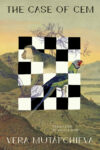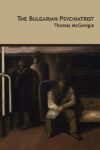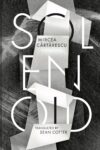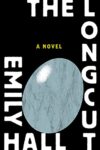Ordinarily Brad Fox lives on the edge of Jackie Robinson Park in Harlem, but when I emailed him to ask about his forthcoming novel, To Remain Nameless, he wrote back from Peru, where a strict state of emergency has prevented him from returning home from what was supposed to be a short trip. Fox is a writer, a teacher at the City College of New York, a grad student at CUNY, and a former relief contractor who has worked in the Balkans, Turkey, the Arab world, and Mexico. Through our email exchange, we discussed his novel, influences, what comes next, and, of course, life under quarantine.
In To Remain Nameless, world-weary Tess returns to the United States to aid in the birth of her old friend Laura’s first child. The dark, sterile womb of the hospital draws Tess inward to reflect, in the rhythmic interludes between contractions, on their shared experiences as humanitarian contract workers in Bosnia, Serbia, Egypt, and the Levant. Her self-reflection, which precedes self-judgment, operates in simultaneity–undergoing waves of intense presence and dissociative otherness, penetrating both the macro and micro patterns of memory, and weighing global suffering against anxieties of the intimate quotidian.
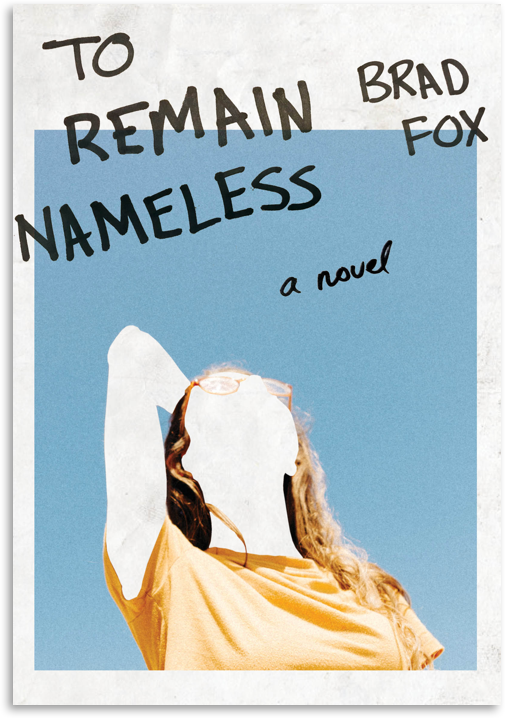
Ellen Boyette: Hi Brad, thanks so much for taking the time to speak with me about your novel. Often first novels like yours have a sense of urgency and necessity that I really admire. What about To Remain Nameless made it the first story you wanted to tell? And what was the impetus that compelled you to complete it?
Brad Fox: Although this is my first novel to come out in the US, it’s not technically my first novel. I wrote a book on my first four years in the Balkans, but it was finished around 9-11 and got lost in that chaos. I never even queried with it, but Serbian novelist Vladimir Arsenijević got ahold of it and translated it, and it was published in Belgrade. Then that translation was translated into Macedonian. At some point the Egyptian novelist Yasser Abdellatif was translating parts of it into Arabic. I haven’t looked at that book in years but I’m sure I’d be pleased it never came out in English.
With this one, I felt very early that I’d stumbled onto something worthwhile, and I wrote very quickly. I’ve cultivated a kind of heat in my process both in order to short circuit my critical faculties, so I can more readily be surprised, and also to outrun my self-doubt. Through the editing process I was careful to protect the flow, to keep some of the mess and drive that define the book’s energy. I imagine that’s the sense of urgency you’re talking about.
It seems To Remain Nameless creates tension by putting opposites in direct confrontation with each other and allowing them to weave a contradictory symbiosis. I’m thinking about Tess’s internal struggle to remain alive with Laura’s decision to bring new life into the world, or both Tess and Laura’s genuine desire to provide aid within a structure that is fundamentally corrupt. Even the title itself, To Remain Nameless, offers a bit of contradiction, the idea of persisting in a life that is defined by its lack of identity. What’s your relationship to contradiction as a writer, is it a driving force or a byproduct of the stories you tell?
This is right at the heart of the matter. I break many brain cells trying to simultaneously hold apparently contradictory thoughts. When I was working in the humanitarian industry I wanted it all to go up in flames. I hardly believed in peace. I knew the effort was corrupt, colonialist, and just as likely to make things worse as better. But still, put in charge of state funds somewhere, I would have increased the budget for international aid. And yes, absolutely, part of the story is to see that as misanthropic and pessimistic as Tess is, what she truly wants to do is to serve, to give everything away, to flow like water downhill. I could pick apart much of it in terms of contradiction. The questionable theologies spouted on the Nile houseboat. The shifting site of the navel of the world. Somehow this all leads me to Laura’s laughter. I hear her laughter running through the whole book.
I’m so glad you mentioned “the navel of the world”—as a reader, I gravitated toward these inherently feminine descriptions about origins and epicenters. They’re evident in both the immediate space (the womb-like hospital room) and the world on a large scale. I’m interested in your decision to write a novel that leaves men in the periphery. Tess and Laura’s relationship is so rich and complicated, and I was deeply moved by your ability to capture the intimacy that goes beyond platonic friendship but resists romantic love that is so fundamental to many close female friendships. What made you want to write a novel that hinged on this kind of relationship? Did you draw inspiration from any sources?
It wasn’t a decision or even an idea. It happened organically.
This book grew out of an earlier novel, still unedited, that tells the story of Tess, her older sister, and her half-brother. So I had lived with Tess as a character for quite a while before I wrote the first sentence of this book. Laura was a minor character, but their relationship was clear to me.
When we moved to New York from Turkey in 2011, my partner Eszter began working as a birth doula and assisted at 40 births over a couple of years. We’d be in the middle of something, and she’d get a call and rush off, ending up in some hospital for 36 hours. She’d come home with half a rotisserie chicken and a six-pack, could be ten in the morning. She’d eat ravenously and tell me what had happened, stories of people pushed to the limit, all their defenses stripped away. Often the body versus the medical system.
One of her clients was a friend of mine, and I ended up in the room during the birth. So I witnessed one birth. A couple of months after that, I woke up one morning and began writing, and I conceived of this book in a flash like that. I understood the whole thing. It was all about Tess and Laura. It wasn’t about consciously excluding men. It was just about those two women.
There were of course many brave, committed, crazy, hilarious women in the humanitarian world who inspired me and who I thought about while writing.
That’s beautiful, and a really pure way to conceive of a book. I’m sure devoted readers will now wonder about this unfinished earlier novel. Any chance the world will see it? Could you envision writing even deeper into this network of characters you’ve already created?
God knows what’s the fate of that other book. I’m sure I’ll go back to it and try to find a home for it at some point. Right now I’m working on a nonfiction book about the bathysphere logbooks, the first eyewitness account of the deep ocean, strange poetic texts dispatched from a half mile below the ocean’s surface in the 1930s. But yes—that network of characters is pretty well elaborated, and I may not be done with them yet. I’ve envisioned a third book from that same material. We will see!
A trilogy! That’s exciting. You’ve already answered a question that I was going to ask, about what you’re working on currently. Now I want to circle back around to the craft of To Remain Nameless. When did the form of the novel, which is almost like a frame narrative, become the evident way to proceed? Did you know from the beginning that the anchor of the novel had to be the birth narrative? I’ve been thinking about the lineage of this form, even back to seminal works like Tristam Shandy, and the generosity of having a present moment to return to in the midst of the chaotic and associative language of memory. There’s something almost meditative about it. And yet, in the case of To Remain Nameless, that present moment is still told in past tense. It’s clear to me that you were in deep conversation with the nature of memory, how to live with it, how to escape it.
I am a great lover of frame narratives, though that’s not exactly how I saw this book. The form came to me in a flash, like I said, but the early drafts were much more tangled. I wanted to give this sense of memory talking to itself, a meditative quality, as you say. Maybe ruminative. Chewing and re-chewing. Which meant at first it was very hermetic, Tess telling herself stories only she would understand. Much of the rewriting was about prying open the story, to make it accessible without diluting its character. When I got to the Cairo section the dynamic changed—the shifts between present and memory became more discrete, and once I established that I went over the whole thing to smooth the transitions while keeping the sense that past and present were wrapped up in each other.
As far as references from literary history, I definitely love Tristram Shandy, though I haven’t reread it in years. One model of embedding a stewing memory within a discrete present is Thomas Bernhard’s The Loser. David Wajnarowicz’s Self-Portrait in 23 Rounds made a huge impact on me as a teenager, that breathless momentum, and I’d reread it sometime around when I started writing. I was also under the spell of Fanny Howe’s beautiful novel Indivisible. I used to make structural diagrams of Burton Watson’s translations of Chuang Tzu. I loved the way they would slide between anecdote and essay and languagey speculation, full of sarcasm and playfulness.
I really felt that there was a shift in the Cairo section as well—a shift in Tess, as well as the form—like a kind of alignment or epiphany took place beneath the surface of the text. Why do you think that is? I felt it had something to do with Tess’ sense of community there, the way community disrupts otherness and allows us to examine it more abstractly. How community others otherness.
I felt the switch happen immediately. As soon as she’s rolling down the double-decker highway into downtown. It’s a moment of zero gravity after many years of white-knuckling. She created herself in the Balkans, made a life for herself, learned a language, managed a crisis, encountered the worst of human nature, was framed and fired, also fell in love, reunited with her half-brother, formed some kind of family. Now dropped in Cairo she’s starting from zero. No work, no language, no connections except the guy she went with. And the crisis is elsewhere—in Iraq. As that’s happening in the narrative, the writing slows its pace a little, settles in, as if reflecting a difference in the way time moves. From frantic it becomes slow and steady.
Not unlike a birth or a rebirth, starting from scratch in an otherwise chaotic world. What you said about time makes me think also of how, for infants and young children, time feels like it goes by so much slower. Once the newness of life fades, things go by more quickly, whether we want them to or not. My last question is, in a way, related. We’re all kind of starting from scratch during this pandemic, trying to orient ourselves to the many tragedies and changes occurring around us. What advice do you have for writers during this time of both inundation and isolation? How are you faring in your own writing life?
Uff—I’d hate to give anyone advice at this point. As for my own situation, I’m currently trapped in a small jungle lodge on the outskirts of Tarapoto, in Eastern Peru. I was with a small group up in the mountains at a more isolated place, without electricity and with limited internet, when we heard Peru had declared a state of emergency, shut down domestic travel, and sealed the borders for an indefinite period. A few days later the seven of us came down the mountain, and now we’re together at this lodge. A very nice place run by a Romanian woman who came here to cure a bone disease through local plant medicines (successfully!). We are three Americans, three Hungarians, and a Russian with no idea when we’ll be able to travel. There’s definitely a Decameron feel to the whole thing. I suppose there must be many new Decamerons being written these days. What else can we do? We cook, we each try to work (except the firefighter among us, thankfully, who is training himself in other skills) and we tell each other stories. I am about to finish the last of the four books I brought with me, Elias Khoury’s fabulous and puzzling Children of the Ghetto (Humphrey Davies, trans.). Meanwhile I’m working on my bathysphere book. Which is fitting because the lead bathysphere scientist, William Beebe, wrote an early article called “Exploring a Tree and a Yard of Jungle.” Here I am surrounded by trees and yards of jungle. Which is very good, plenty. I feel very lucky.
Ellen Boyette is a poet from Asheville, NC. She received her MFA in Poetry from the Iowa Writers’ Workshop, where she was a recipient of the Alberta Kelly Fellowship as well as a Teaching-Writing Fellowship. Her first book of poetry, BEDIEVAL, was a finalist for the 2019 Slope Editions Book Prize, judged by Solmaz Sharif. Her work appears or is forthcoming from The Columbia Review, Denver Quarterly, Prelude, Bennington Review, poets.org, and elsewhere.
This post may contain affiliate links.




